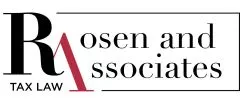- within Media, Telecoms, IT and Entertainment topic(s)
- with Senior Company Executives, HR and Finance and Tax Executives
- with readers working within the Accounting & Consultancy, Technology and Property industries
It may be well-known that litigation can be an expensive venture, but the nuances of how costs can impact a case are often overlooked. The recent decision in Watts v The King, 2024 TCC 100, serves as a pertinent example of the complexities involved in litigation, particularly regarding the discretionary powers of the Tax Court of Canada in awarding costs.
Background: Watts v The King, 2023 TCC 11
In Watts v. The King, 2023 TCC 11, the Tax Court of Canada emphasized that tax liability exists regardless of an assessment; assessments are merely procedural tools for determining owed taxes. The case involved Miriam Watts and her husband, Lawrence Watts, who was imprisoned for participating in a fraudulent tax scheme.
Lawrence Watts was convicted of creating false tax returns that led to fraudulent refunds. The court assessed Miriam under section 160 of the Income Tax Act (ITA) for property transfers from Lawrence to their company, CBLW Trading Company Limited, and then to a trust, which purchased a home in Miriam's name.
Although CBLW was dissolved at the time of assessment, the CRA failed to revive it within the required two years, leading Miriam to argue that the assessment was improper. However, the court held CBLW liable for receiving transfers with inadequate consideration, making Miriam liable as well. Section 160 states that both the transferor and transferee can be held jointly responsible for the tax owed.
Miriam also claimed the property was compensation for her work for the fraudulent scheme, but the court found insufficient evidence to support this, noting a lack of documentation and that Lawrence had referred to the property as a gift to her during his criminal trial.
Order on Costs: Watts v The King, 2024 TCC 100
In ordering costs, the Honourable Justice MacPhee highlighted the broad powers of the Tax Court under subsection 147(3) of the Tax Court of Canada Rules, allowing for costs to be awarded beyond standard tariff amounts, often referred to as "enhanced costs". The factors the Court considers when exercising its discretion in awarding costs include the volume and complexity of the work involved, any written offers of settlement, and the conduct of the parties involved.
MacPhee J. reinforced that costs must be awarded based on principled reasoning, rather than arbitrary judgment . The Court ultimately determined that the appellant's motions were without merit, creating unnecessary work for the respondent and proving unsuccessful. As a result, the respondent's request for a $30,000 cost award was deemed reasonable and was granted.
Key Takeaways
This case illustrates that costs can function both as a means of relief and a deterrent in litigation. While winning a case in Tax Court might lead to a cost award in your favor, losing can result in a substantial financial burden. This dichotomy emphasizes the importance of consulting a tax professional before deciding to embark on litigation.
The Dangers of Litigation
Watts v The King highlights several potential dangers associated with litigation. First and foremost, the financial implications can be significant. Beyond court fees and legal expenses, a losing party may face substantial costs awarded against them, which can escalate the total financial burden of pursuing a case.
Moreover, the complexity of legal proceedings can be overwhelming. As noted in the case, the Court considered the volume and complexity of the work involved. Navigating through intricate legal rules and procedures without the guidance of an experienced tax professional can lead to costly mistakes. This complexity not only impacts the outcome of the case but also prolongs the litigation process, adding to the financial strain.
Conclusion
In light of the Watts v The King decision, it is crucial for potential litigants to consider the risks associated with litigation carefully. The financial, emotional, and procedural challenges can outweigh the benefits of pursuing a case. Seeking early resolution alternatives, can often be a more prudent course of action. Ultimately, understanding the intricacies of costs and the litigation process can help individuals and businesses make informed decisions, mitigating the potential dangers of entering a courtroom.
The content of this article is intended to provide a general guide to the subject matter. Specialist advice should be sought about your specific circumstances.



